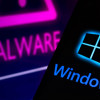15 Ways Microsoft Can Reinvent Itself for the Post-Gates Era
A computer on every desk and in every home, running Microsoft software. That, Bill Gates has often said, is the vision on which he and Paul Allen founded their software company in 1975. There's debate over when the mantra was first articulated--the earliest known instances go back only to the mid-1980s--but this much is undeniable: Microsoft made that audacious goal a reality.
Today, as Gates prepares to step down from day-to-day management of the company, another fact is clear: The modern Microsoft remains a company in search of a second act. True, it remains one of the world's most profitable enterprises, raking in more dough in its 2007 fiscal year than Apple, Google, Yahoo, Oracle, and Adobe combined. But the cracks in the Microsoft hegemony aren't just showing, they're growing.
On the Web, it's Google, not Microsoft, that inspires the blend of awe and fear that Gates and company commanded in the 1990s--and Microsoft's answer, the attempted acquisition of Yahoo, fizzled. The company's attempts to extend Windows and Office to the Web have been lackluster and confusing. Old adversaries like Apple and gutsy upstarts like Mozilla are making meaningful inroads on Microsoftian monopolies. And outside of Redmond, almost everybody seems to regard Windows Vista as a disappointment.









































































